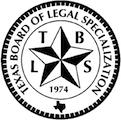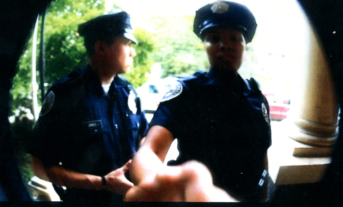What are a child’s rights when questioned by police in school?
It often comes as a big surprise to parents that the police may be able to interview your child without you even being aware. The law in Texas regarding the questioning of juveniles closely follows the rules in the adult courts. Courts look to see “how a reasonable man in the suspect’s position would have understood his situation.”1 If a court determines through a totality of the circumstances that the person being questioned was in custody then they must be read their Miranda rights. Courts often consider several factors, including if the person was handcuffed, placed in the back of a squad car, informed that they were being detained, or had it demonstrated to them that they were not free to leave. If the person is being detained, the police officer must read that person their Miranda rights, including telling them that they have the right to remain silent and have the right to an attorney.
Often, considering the factors above, school police officers will intentionally make a child feel less threatened, by doing things like not displaying their firearm, leaving the door open to the room where they are being interrogated, etc.
In Texas, Juvenile law has very similar rules comparative to the adult criminal justice system (with a handful of important differences). In juvenile courts, if a child is arrested they must be first taken to a Judge (or magistrate) and read certain warnings, which includes Miranda warnings. If the Judge is convinced the child understands the warnings, and chooses to voluntarily speak with the police, then permission can be given for the police permission to continue with a planned interrogation.
The more problematic situation is when the juvenile (the child) is not in custody (or under arrest). If a child is questioned when they are not deemed to be in custody, then no warnings are required to be given to the child. During these interviews, the child is free to stop the interview at any time, request an attorney, or request his parents (similar to the rights adults share when questioned by the police).
The problem, however, is generally a juvenile (child) is not aware of their rights, much less how to exercise them. Thus, unless the child has previously been made aware of these rights they are unlikely to realize that they are not required to talk. The question of if a child is in custody is extremely complex, and courts consider all the surrounding circumstances of the interrogation.
Likewise, a child may be interviewed by a member of the school’s staff, such as a teacher, principal, or counselor. These interviews are of a particularly high danger, as a child is even less likely to understand the legal ramifications of speaking with one of these individuals. Thus, it is no doubt the best practice is to prepare the child ahead of time by informing them that they have the absolute right not to talk to anyone, about anything.
The bottom line to all of this means that if the police wish to speak/ question your child, as long as they have not placed them under arrest, they are free to do so and conduct an interview. Additionally, if school staff chooses to speak to a juvenile not in custody, they are not required to inform parents of their intentions to speak with your child. It is important that juvenile clients understand that they are not required to talk to anybody for anything they may be accused of. In fact, in all of these situations, it is imperative that your child remain silent.






















